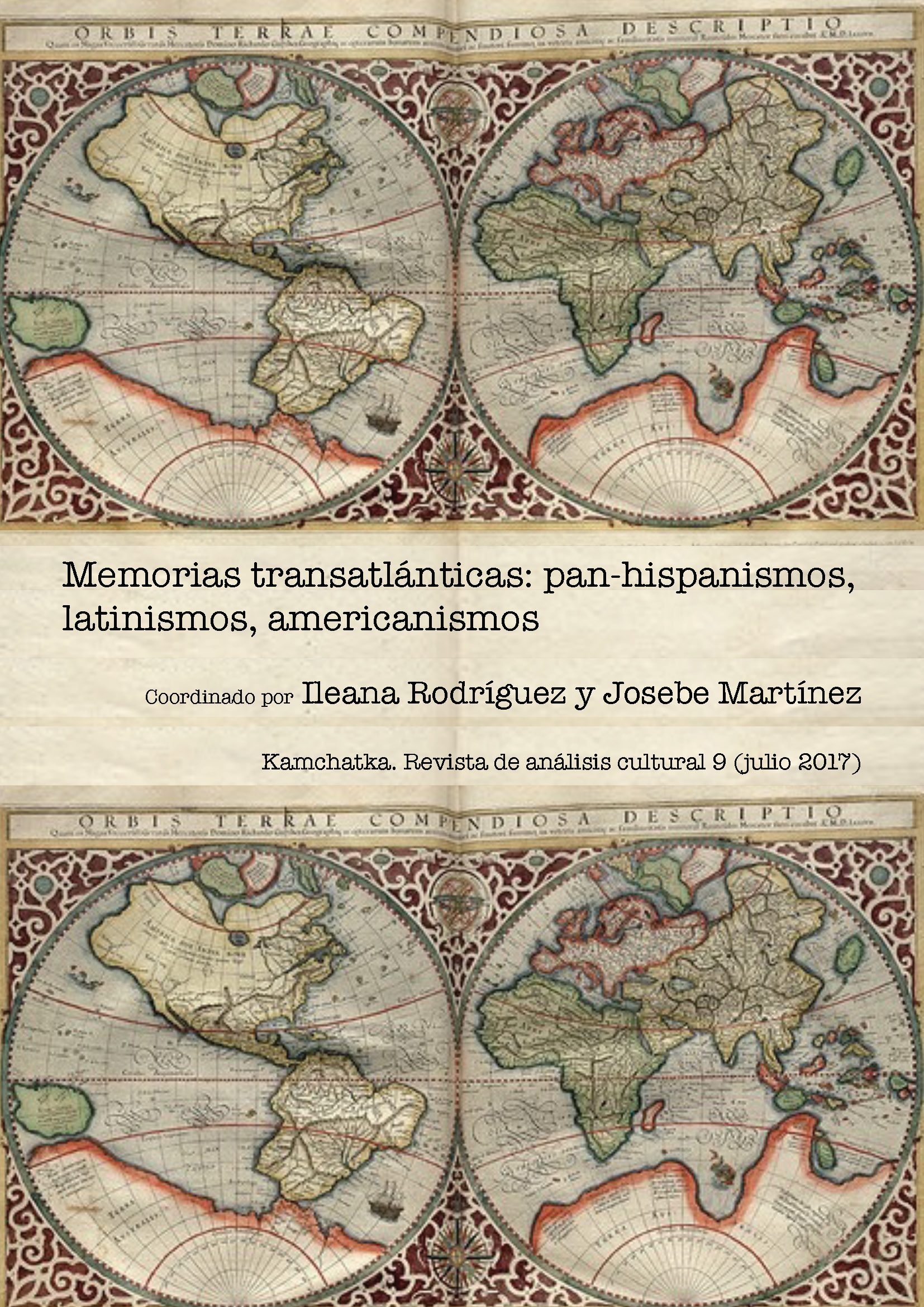Percepciones de la crisis en 'El último verano', del colectivo NOPHOTO / Sensing the crisis in Nophoto’s 'El último verano'
DOI:
https://doi.org/10.7203/KAM.9.10012Keywords:
Crisis financiera, fotografía, Tiempo / temporalidad, Affect Studies, subjetividad, neoliberalismo, creación colectiva Abstract
Abstract
Resumen: El proyecto fotográfico El último verano (2012) del colectivo NOPHOTO, ofrece un conjunto de percepciones fragmentadas, y a veces contradic-torias, sobre una cotidianidad estructurada por la crisis económica. Partiendo de la noción del impasse neoliberal de Lauren Berlant, este análisis aborda las formas en que la crisis resulta perceptible en las fotos, primero en el apego afectivo del sujeto hacia sus pérdidas anticipadas, y después en las tácticas de supervivencia desarrolladas en tiempos de crisis. El hecho de hacer un balance del presente en el impasse, parece estar inmerso en estas fotografías con un fuerte sentido de temporalidad en el que el cambio y la pérdida desestabilizan el presente, evocando senti-mientos de retorno, nostalgia, proyección futura, fantasía escapista, ansiedades sobre las perspectivas de riesgo, etc. Y en las fotografías, el carácter compuesto del proyecto señala a los espectadores otras formas de mirar en tiempos de crisis, desde perspectivas plurales, que en su conjunto ensamblan una circunstancia colectiva y compartida de la vida cotidiana en tiempos de austeridad
Palabras clave: fotografía documental, crisis financiera, neoliberalismo, temporalidad, afecto, subjetividad.
Abstract: NOPHOTO’s collective photography project El último verano provides a fragmented, contradictory document to the deteriorating conditions of everyday life in times of crisis. In it, nine photographers turn their lenses toward portraits of downward mobility, precarity, and the growing phenomenon of emigration, as well as summer pleasures and moments of escape. Drawing from Lauren Berlant’s writings on the impasse in neoliberalism, I read how la crisis is sensed first in these photos in the subject’s affective attachments to perceptible losses and then in strategies for survival developed amid an ongoing crisis. Taking stock of the present at an impasse, I argue, is immersed in a strong sense of temporality for the present ungrounded by change—of nostalgia and return, of future projection, of escapist fantasy, of present anxieties for risk—and in the photographs, indexes for viewers other narratives on the crisis, in plural ways, that piece together a collective, shared circumstance in times of austerity.
Key Words: documentary photography, financial, crisis, neoliberalism, temporality, affect, subjectivity.
 Downloads
Downloads
 References
References
Banet-Weiser, Sarah (2012). “Branding the Crisis.” Manuel Castells, et al (eds.) Aftermath: The Cultures of the Economic Crisis. Oxford y Nueva York: Oxford University Press: 107-31. Barthes, Roland (1981). Camera Lucida. Reflections on Photography. Nueva York: Hill and Wang. Berlant, Lauren (2011). Cruel Optimism. Durham y Londres: Duke University Press. Berlant, Lauren. “Thinking about Feeling Historical.” Emotion, Space, and Society 1 (2008): 4-9. Brown, Wendy (2005). “Neoliberalism and the End of Liberal Democracy.” Edgework: Critical Essays on Knowledge and Politics. Princeton: Princeton University Press: 37-59. Deleuze, Gilles y Félix Guattari (1987). A Thousand Plateaus. Capitalism and Schizophrenia. Vol. 2. Minneapolis y Londres: University of Minnesota Press. Fernández-Savater, Amador, et al (2012a). “Occupy más allá de Occupy (I).” Eldiario.es: http://www.eldiario.es/interferencias/Occupy_Wall_Street-aniversario_6_49755042.html. Fernández-Savater, Amador, et al (2012b). “Occupy más allá de Occupy (II).” Eldiario.es: http://www.eldiario.es/interferencias/Occupy-crisis-aniversario-EEUU_6_51154885.html. Foucault, Michel (2008). Birth of Biopolitics. Lectures at the Collège de France, 1978-1979. Basingstoke, Reino Unido: Palgrave Macmillan. Hardt, Michael y Antonio Negri (2012). Declaration. Nueva York: Argo Navis. Harvey, David (2005). A Brief History of Neoliberalism. Oxford y Nueva York: Oxford University Press. Labrador Méndez, Germán. “Las vidas subprime: la circulación de historias de vida como tecnología de imaginación política en la crisis española (2007–2012).” Hispanic Review 80.4 (2012): 557-81. Lazzarato, Maurizio. “Neoliberalism in Action: Inequality, Insecurity, and the Reconstitution of the Social.” Theory, Culture & Society 26 (2009): 109-33. Lemke, Thomas. “‘The birth of bio-politics’: Michel Foucault's lecture at the Collège de France on neo-liberal governmentality.” Economy and Society 30.2 (2001): 190-207. NOPHOTO (2012a). El último verano: http://elultimoverano.nophoto.org. NOPHOTO (2012b). El último verano. NOPHOTO ha decidido documentar la evolución del verano de 2012. Catálogo. Madrid: CentroCentro & NOPHOTO. Rose, Nikolas (1999). Powers of Freedom: Reframing Political Thought. Port Chester, Nueva York: Cambridge University Press. Snyder, Jonathan (2015). Poetics of Opposition in Contemporary Spain: Politics and the Work of Urban Culture. Nueva York: Palgrave Macmillan.
Downloads
Published
How to Cite
-
Abstract1241
-
Artículo (Español)436
Issue
Section
License
This journal provides an immediate free access to the content on the principle that freely make investigation available to the public, which promotes an increased global knowledge exchange.
Unless otherwise indicated, texts published in this journal are under the license Attribution-NonComercial 4.0 by Creative Commons. These texts may be copied, distributed and publicly communicated whenever the publication’s author and title are quoted and whenever they are not used for commercial purposes. In any case, intellectual property of the articles and its potential economic rights entirely belong to its authors.
The full license can be consulted on https://creativecommons.org/licenses/by-nc/4.0/. We encourage authors to disseminate papers published in Kamchatka. Journal of cultural analysis electronically, in institutional digital repository or in their websites.





